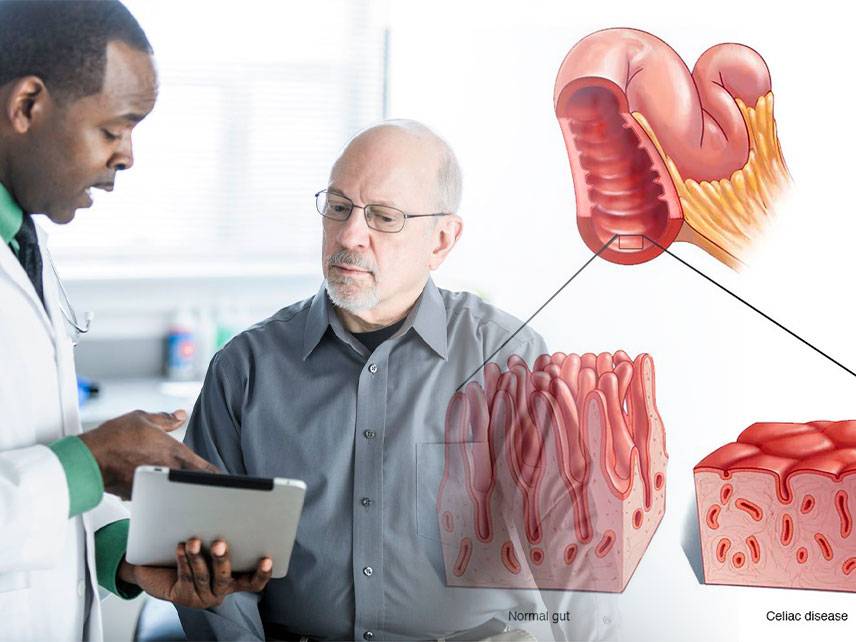
What is Celiac Disease: symptoms, causes, diagnosis, treatment.
Celiac Disease is an autoimmune disorder that affects the digestive system. It occurs when the body's immune system reacts to the protein gluten, which is found in wheat, rye, and barley. Symptoms may include abdominal pain, bloating, diarrhea, weight loss, fatigue, and anemia.
The exact cause of Celiac Disease is unknown, but it is believed to be triggered by a combination of genetic and environmental factors. People with certain genetic markers are more likely to develop Celiac Disease than others.
Diagnosis of Celiac Disease is done through blood tests and biopsy of the small intestine. A doctor may also order tests such as X-rays and CT scans to look for damage to the small intestine.
The primary treatment for Celiac Disease is a strict gluten-free diet. This means avoiding all foods and beverages that contain gluten. People with Celiac Disease should also take supplements to replace lost nutrients. In some cases, medications may be prescribed to reduce inflammation and relieve symptoms.




